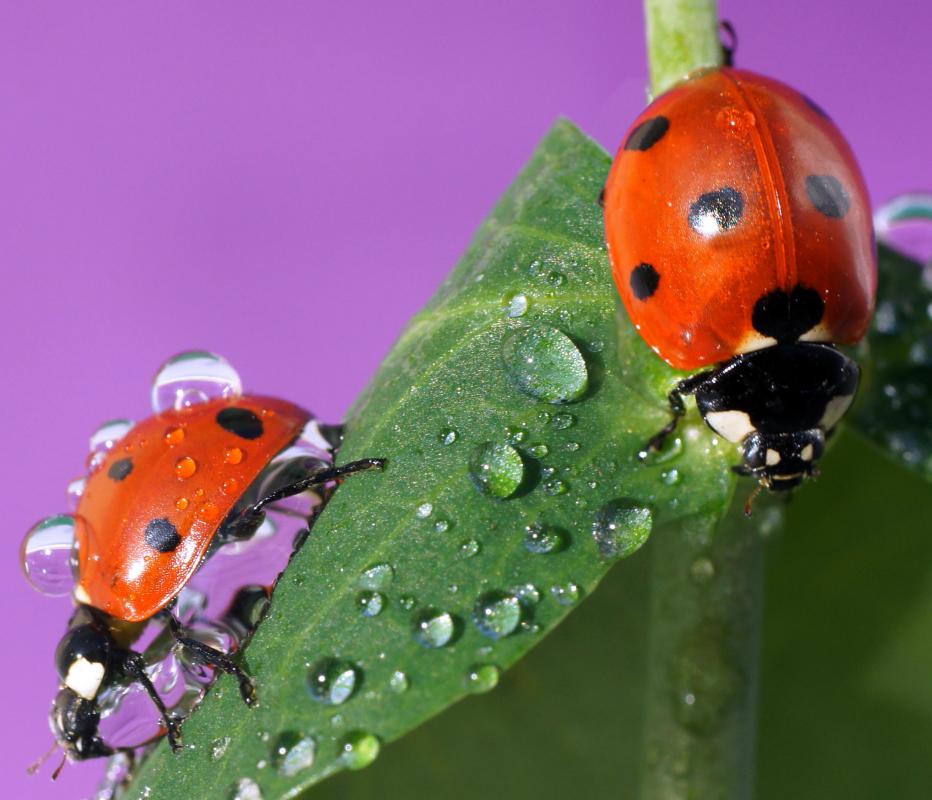At HomeQuestionsAnswered, we're committed to delivering accurate, trustworthy information. Our expert-authored content is rigorously fact-checked and sourced from credible authorities. Discover how we uphold the highest standards in providing you with reliable knowledge.
What Are the Most Common Eggplant Pests?
Eggplants are part of the same family — the nightshades or solanaceae — as tomatoes, peppers and potatoes and are affected by a number of the same pests. The most common of the eggplant pests are members of the beetle, bug and mite groups. These pests consume the leaves and suck the life-supporting sap from the plants. Eggplants are also susceptible to various bacterial and fungal diseases that cause wilting and rot. Growing vegetables in the garden provides fresh, healthy produce but requires knowledgeable pest and disease management for an abundant crop.
One of the most obvious of the eggplant pests is the leaf-eating Colorado potato beetle. This striped beetle and its larva consume the foliage of potatoes, peppers and tomatoes. Tiny spider mites are one group of eggplant pests that suck the juices of eggplants, weakening the plants. These pests are found on the undersides of the leaves. They are most active during the dry, hot spells towards the end of summer and can be discouraged by adequately watering the eggplants.

Flea beetles are group of small insects that are common pests of all of the solanaceae crops. They are especially damaging to eggplants, which they prefer. The larva feed on the developing roots, while the adults attack the above-ground portions of the plant. Eggplant lace bugs and tiny aphids are eggplant pests that have specialized mouth parts for penetrating the plants and sucking their juices. An infestation can weaken the plants, preventing blossoming or stunting growth.

Eggplants are also susceptible to bacterial and fungal diseases. Verticillium wilt is caused by a soil fungus and results in small, wilted plants that eventually die. Blossom end rot is another fungal disease that causes the ripening fruits to fall off. Eggplants are also prone to bacterial wilt, which kills most infected plants. Several kinds of blight affect developing fruits or the whole plant, eventually causing the loss of the fruits or the destruction of the entire plant.
To protect this warm weather crop, using collars and row covers can help prevent early infestations. Frequent inspections and the use of insecticidal soaps can lessen the impact of pests on mature plants. Rotating where eggplants are located in the garden from year to year also helps reduce eggplant pests and diseases. Using insect predators such as ladybugs to control mites and praying mantis for larger insects is a strategy employed by many gardeners. Successful pest management is a key step in ensuring a healthy crop of eggplant.
AS FEATURED ON:
AS FEATURED ON:












Discussion Comments
I think I'm going to search for a more cold resistant eggplant and see if I can get one that will grow in my area. Hopefully it will be fairly hardy against pests as well.
@browncoat - A good trick, if you are growing your eggplants in a greenhouse, is to plant them in pots rather than into the ground. That way you can shift them around and you might even be able to get away with not rotating them, because you can rotate the pots instead.
Most pests that can be deterred by rotation live in the ground at some point of their life-cycle, so if you make sure that the soil the eggplant was growing in is used for something else next year, that will basically do the job of rotating them.
I think rotating crops is one of the most important things you can do, particularly if you are growing plants in a greenhouse, which tends to concentrate everything even more than a garden would.
You have to bear in mind that the eggplant is related to the tomato and so forth and they share the same pests. There's no good in swapping eggplants for tomatoes each year, because that won't do any good. The pests will just continue to build up.
This makes it sound complicated, but it really isn't. You just have to find a good rotation guide that groups the plants so that you know a good one to swap.
Post your comments